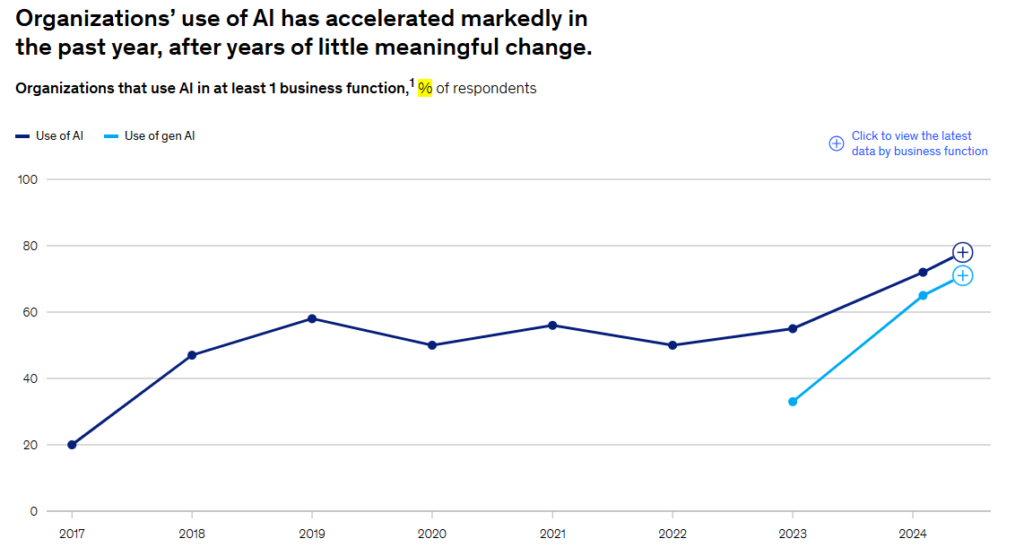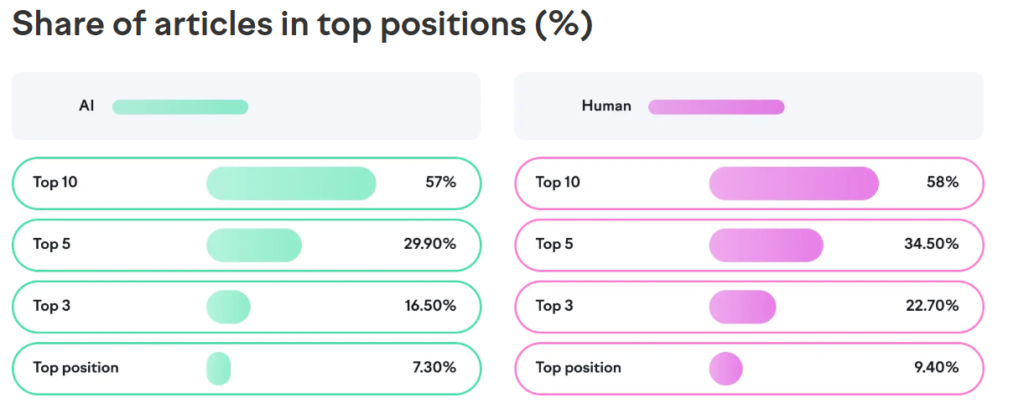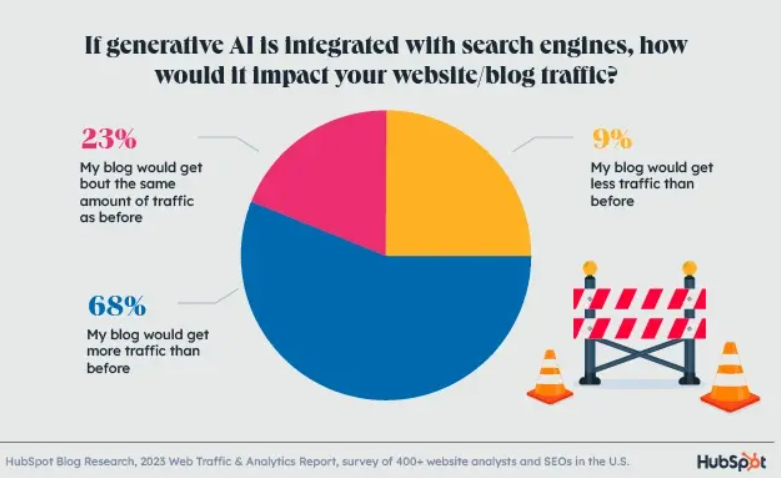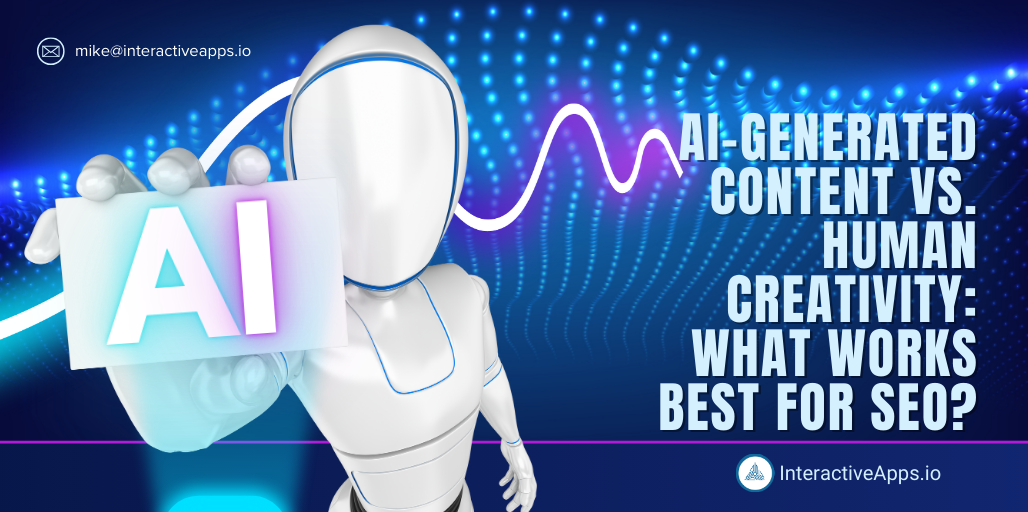In an era of fast-paced digital marketing, search engine optimization (SEO) isn’t just a strategy—it’s survival for businesses, brands, and bloggers. Everyone battles for the top spot on Google, where being seen means clicks, customers, and revenue.
The AI revolution has changed the way of content creation like never before. Tools like ChatGPT, Jasper, and Google Gemini can now produce SEO-friendly well-written content in seconds. But there remains a question on everyone’s mind: Is human creativity still necessary for content creation, or has AI officially taken the seat?
While AI-generated content could be time-saving, efficient, and scalable, businesses and brands want to know the truth of this advantage. Does it truly outperform human writing in terms of SEO, engagement, and credibility? Or does the human touch—insight, storytelling, and emotional depth—still hold the winning edge?
Be with us, here is all for you.
The AI Content Boom: How Machines Are Changing SEO
AI-powered content creation tools have become mainstream for many businesses diving into AI avenues. These platforms generate articles, blogs, social media posts, and even marketing copy within seconds. The AI content industry is growing at a rapid pace.
- According to a 2023 report by Market Research Future, the AI content creation market is expected to reach $25 billion by 2028, growing at a compound annual growth rate (CAGR) of 17.3%.
- According to a November 2024 report by Authority Hacker, over 85% of users are using AI content tools to increase content production, while 65.8% of people believe AI content is equal to or better than human writing.
- According to a McKinsey report of March 12, over 75% of organizations have integrated AI into at least one business function.

“92% of respondents report that AI has impacted their role already, and more than a third say ‘very significantly,” said the Hubspot State of Marketing Report 2025.
Does AI Content Rank? Google’s Perspective
Google has made its stance clear on AI-generated content: Quality matters more than the creator. In February 2023, Google updated its E-E-A-T (Experience, Expertise, Authoritativeness, and Trustworthiness) guidelines, emphasizing the need for high-quality content, whether written by humans or AI.
AI Content Can Rank, But With Conditions
According to a Semrush study, AI-generated content ranks on Google 57% of the time under the top 10 if it meets key quality factors. However, AI content struggles with depth, originality, and engagement, making it less effective for long-term SEO.

A HubSpot survey reveals that 68% believe integrating generative AI with search engines will increase blog traffic. Meanwhile, 23% expect no change, and only 9% foresee a decline.

Key takeaways from Google’s approach to AI content:
- AI-generated content isn’t penalized by default.
- It must provide real value and avoid generic or spammy writing.
- AI lacks human experience, which can hurt rankings under Google’s E-E-A-T principles.
- AI-generated content often lacks fresh perspectives, which reduces engagement.
While AI can assist in content creation, Google’s algorithms still favor content that demonstrates human experience, expertise, and originality.
The SEO Power of Human Creativity
1. Humans Excel at Storytelling and Emotion
Google values engaging, useful, and meaningful content—qualities that AI struggles with.
A 2024 Content Marketing Institute study found that 91% of high-ranking blog posts contained elements of storytelling, unique insights, or personal experience. Readers connect with human-created content because it resonates emotionally.
Example:
Imagine an article titled “How I Grew My Blog Traffic by 300% in 6 Months” vs. “Top 10 SEO Strategies for Traffic Growth”.
The first title suggests personal experience, while the second feels generic. Which one do you think people would click on?
Human-driven content builds trust—a critical ranking factor under Google’s E-E-A-T framework.
2. Humans Create Unique Research and Data-Driven Insights
AI can analyze existing data but cannot conduct original research or gather firsthand insights.
- About 77% of top-ranking content included original research, surveys, or case studies.
- Content with unique statistics receives 2.5x more backlinks, boosting SEO rankings (Backlinko, 2023).
Example:
A tech blog reviewing the latest iPhone with real hands-on testing will always outrank a generic AI-written product summary.
Google rewards content that contributes new ideas to the conversation. If your competitors rely on AI-generated content, you can gain an edge by publishing unique, data-backed insights.
3. Humans Adapt Faster to SEO Trends
SEO changes frequently, and human writers can adapt better than AI.
For example:
- In March 2024, Google launched a new ranking algorithm update, focusing on “Helpful Content.” Websites with over-reliance on AI-generated text saw a drop in rankings.
- Experts like Brian Dean (Founder of Backlinko) recommend blending AI with human editing to ensure quality and compliance with Google’s evolving rules.
A human writer can pivot their content strategy based on SEO updates—something AI struggles to do effectively.
Comparing AI-Generated vs. Human-Written Content for SEO
| Factor | AI-Generated Content | Human-Written Content |
| SEO Ranking Potential | Moderate, if optimized | High, due to originality |
| Engagement & Readability | Lacks emotional depth | Strong storytelling and emotion |
| Trust & Credibility | Weak E-E-A-T compliance | Strong E-E-A-T compliance |
| Creativity & Uniqueness | Often repetitive | Highly creative |
| Content Production Speed | Instant | Slower but refined |
| Ability to Generate Backlinks | Low | High, if research-based |
| Cost Efficiency | Cheaper | Higher cost, better ROI |
The table makes it clear: AI is great for efficiency, but human creativity still leads when it comes to SEO performance, engagement, and credibility.
Best SEO Strategy: AI + Human Creativity
The winning formula isn’t AI vs. humans—it’s AI + humans.
How to Use AI for SEO Without Losing the Human Touch:
AI for Research & Drafting – AI can generate quick outlines and summaries that can save writers time.
Human Editing for Quality – Writers should refine AI-generated content, look for possible factual errors, and add a personal tone, and insightful information.
Human Experience for E-E-A-T – Share real examples that will help readers to understand quickly, opinions, and expertise to differentiate from AI-written competitors.
AI for SEO Optimization – AI tools like SurferSEO and Clearscope help fine-tune content for better rankings.
Real-World Case Study: AI + Human Hybrid Approach
A 2023 Authority Hacker case study compared two blog strategies:
- 100% AI-generated content → Ranked in the top 20% but struggled to maintain rankings due to low engagement.
- AI-assisted, human-edited content → Achieved 50% more traffic, higher dwell time, and better backlink acquisition.
The takeaway? AI can accelerate content creation, but human refinement is crucial for long-term SEO success.
Final Verdict: What Works Best for SEO?
So, AI or human creativity—what wins?
- For speed and efficiency → AI is unbeatable.
- For originality, engagement, and trust → Humans win every time.
- For best SEO results → A hybrid approach delivers the strongest rankings.
Google is clear: High-quality, valuable content wins in SEO. AI can assist in creation, but human creativity is the differentiator that keeps readers engaged and search rankings high.
If you want to dominate SEO, use AI wisely—but never replace the human touch.
Would you rather have fast, generic content or valuable, engaging insights that rank? The answer is clear.
So all-in-all, AI is a tool. Human creativity is the strategy. SEO success lies in balancing both.



